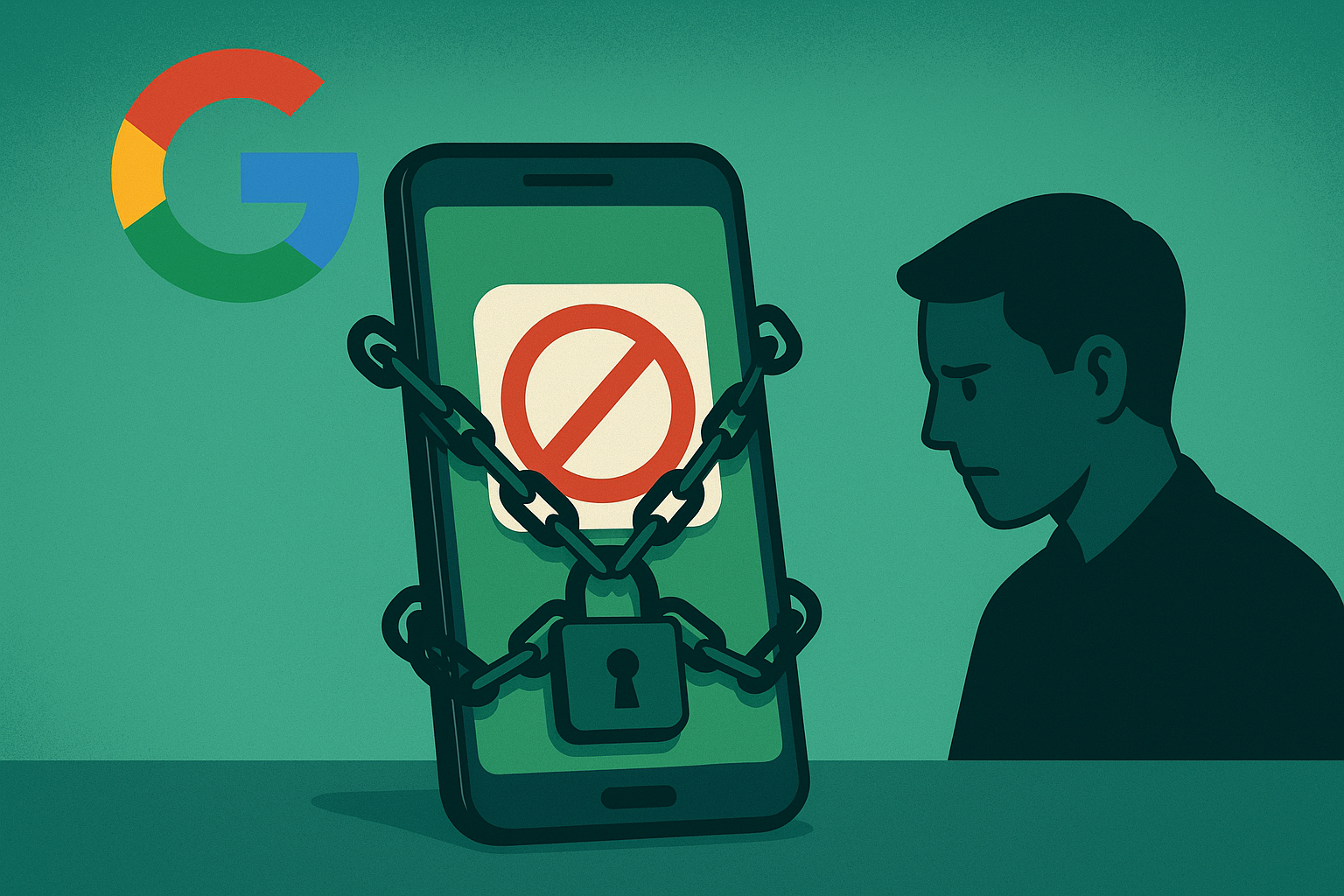Google to Restrict Android Sideloading

Google to Restrict Android Sideloading: What This Means for European Users
Google has announced a major change for Android users: new restrictions on sideloading apps are coming soon. According to a recent TechSpot article, Google will begin blocking the installation of unverified Android apps, dramatically limiting the freedom users have enjoyed for years. For European users—and anyone who values digital autonomy—this is a significant development.
What is Sideloading?
Sideloading lets users install apps on their Android devices from sources other than the official Google Play Store. It’s a feature that has always set Android apart from Apple’s tightly controlled ecosystem, giving users the flexibility to access apps that might not be available on the Play Store, including open-source projects, region-specific tools, and privacy-focused alternatives.
Why Is Sideloading So Important?
Sideloading is more than just a technical feature—it’s a pillar of user freedom and innovation on Android. Here are some key reasons why it matters:
- Choice and Control: Sideloading empowers users to choose the software they want, not just what’s approved by Google. If an app is removed from the Play Store, unavailable in your country, or doesn’t meet Google’s guidelines, sideloading is often the only way to get it.
- Open Source and Independent Apps: Many open-source apps, privacy tools, and independent projects avoid the Play Store because of fees, restrictive policies, or philosophical differences. Sideloading allows these apps to reach users directly.
- Regional and Cultural Diversity: Developers can share apps tailored to local languages, laws, and customs—even if those apps aren’t globally distributed. Sideloading supports a diverse app ecosystem.
- Legacy and Niche Apps: Some older or niche apps are no longer maintained on the Play Store but still serve important functions for certain users. Sideloading keeps them alive.
- Testing and Development: For developers and power users, sideloading is essential for testing new versions, beta releases, or custom builds before they’re ready for widespread release.
Without sideloading, Android risks becoming a closed ecosystem, where a single corporation decides what software users can access.
What’s Changing?
Starting soon, Google will block sideloaded apps that haven’t been verified through their Play Integrity API. This means:
- Unverified apps (including many open-source, independent, and region-specific tools) may not install or run on new Android devices.
- Developers who don’t meet Google’s criteria or use alternative distribution methods will see their apps blocked.
- Even apps you trust, but which Google hasn’t “approved,” could be inaccessible on your phone.
Why Is Google Doing This?
Google claims the move is to protect users from malware and unsafe software, citing security concerns. While keeping users safe is important, critics argue this is also about control—restricting competition, forcing developers to play by Google’s rules, and limiting user choice.
How Does This Affect European Users?
- Loss of Digital Freedom: Many European users rely on sideloading to access apps that respect local laws, languages, and privacy standards. Blocking these apps means less choice and autonomy.
- Impact on Open Source: Open-source apps often avoid the Play Store due to fees, policies, or privacy concerns. Google’s new policy could effectively lock out these alternatives.
- Regional Innovation: Sideloading has enabled developers in Europe to create solutions for local needs. These restrictions could stifle innovation and diversity in the app ecosystem.
What Can You Do?
- Support Open Platforms: Look for devices and operating systems that support true app freedom. Projects like /e/OS, GrapheneOS, and other Android forks may provide alternatives.
- Advocate for User Rights: Contact your local digital rights groups or legislators to push for regulations that defend user choice and prevent monopolistic practices.
- Stay Informed: Keep up with developments from organizations like the EFF, FSFE, and local privacy advocates.
Conclusion
Google’s move to restrict sideloading is a watershed moment for digital freedom on Android. For European users, it means less control, fewer choices, and a step closer to the kind of closed ecosystem many have long avoided. Now, more than ever, it’s important to support alternatives and advocate for the right to control your own devices.
Read the full TechSpot article for more details: Android sideloading faces new restrictions: Google blocks unverified apps